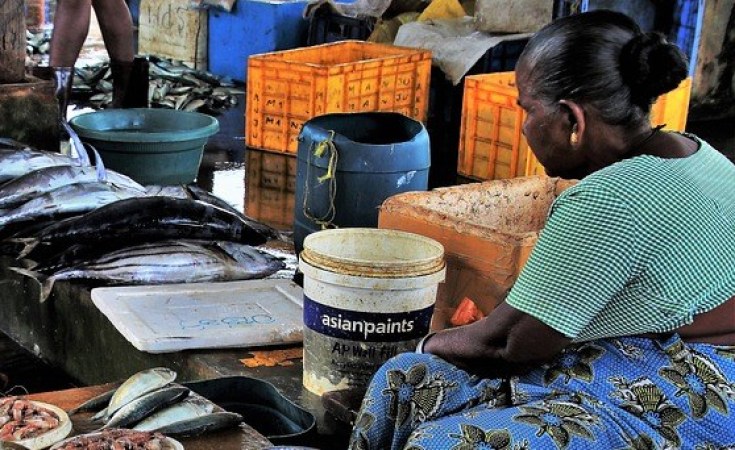Africa's poor gender equality track record must be reversed if the AfCFTA's vast potential is to be realised.
Africa could benefit greatly from the African Continental Free Trade Area (AfCFTA), but for all Africans to enjoy the fruits of freer trade, greater gender equality is needed.
A Free Trade scenario mapped by the African Futures and Innovation team at the Institute for Security Studies (ISS) shows how effective liberalised trade could be for tackling extreme poverty and increasing average incomes. The scenario is based on AfCFTA's full implementation by 2033.
Closer to 2043, the Free Trade forecast outperforms the other 10 scenarios modelled by ISS on gross domestic product (GDP) per capita growth for every country analysed. Countries like Malawi, Rwanda and Madagascar will see increases above 15% in GDP per capita in the Free Trade scenario compared to their Current Path expected increases. On average, Africa's GDP per capita will rise by 10%, or US$723, by 2043 in the Free Trade scenario compared to the Current Path.
The Free Trade scenario combats extreme poverty too. By 2043, 80.3 million fewer people in Africa would be living below the US$1.90 poverty line compared to the Current Path forecast, a reduction of 3.6 percentage points in the poverty rate. A revolution in agriculture is the only scenario that outperforms the Free Trade projection.
Liberalising trade could unlock better futures for all Africans, especially women. Increased trade generally results in more formal employment for women, higher wages, especially for skilled female labour, and greater overall female employment. This would be most keenly felt in sectors where women comprise most of the workforce.
A World Bank study estimates which sectors are expected to experience the largest changes in female employment. The report doesn't consider the impact of the AfCFTA on informal cross-border trade due to a lack of data. Women constitute most informal traders in Africa, and these trade flows contribute significantly to national GDP, although the true extent remains underreported. African countries should monitor these flows to fully understand AfCFTA's effect on trade and gender equality.
Changes to employment in formal sectors are however for Africa generally. The World Bank report emphasises the need to differentiate between countries and their unique experience of AfCFTA to tackle the adverse distributional effects of the agreement.
As certain sectors of the economy are exposed to increased competition due to lower trade costs, workers should adapt to different skill demands and move to industries that benefit from comparative advantages. To accommodate these transitions, countries need a policy environment suited to their domestic situations. Labour mobility should be supported and equal opportunities provided, especially for women.
The lack of female access to education is a major barrier to benefiting fully from the free trade area
Social norms and attitudes, and laws that cause and perpetuate gender inequality, remain significant hurdles for Africa. The 2019 Social Institutions and Gender Index (SIGI) compiled by the Organisation for Economic Co-operation and Development measures discrimination against women in social institutions in 180 countries. The index paints a worrisome picture for Africa, with high levels of domestic violence, low female access to financial resources and restricted access to land and non-land assets for women.
A key indicator of discrimination is the division of household labour. Women shoulder the brunt of work, and their rights to be considered household heads are restricted. African women spend, on average, four times the amount of time on unpaid domestic, volunteer and care work compared to men. Consequently, women have less time to attain skills and resources to maximise opportunities presented by AfCFTA.
The lack of female access to education is a significant barrier to benefiting fully from the free trade area. Higher levels of education are crucial to attaining formal employment and responding to structural shifts in the labour market. The ability of women and girls to enrol in education is restricted by social norms such as the division of household labour.
The United Nations Development Programme's Gender Inequality Index shows that African female attainment of secondary education lags behind their male counterparts. This decreases women's ability to secure better-paying jobs and acquire sought-after skills.
Women could be left behind if AfCFTA isn't accompanied by policies enabling them to benefit
Low levels of educational attainment are intrinsically linked to gendered social norms in African societies. A key barrier is child marriage, with analysis showing that a year of early marriage reduces the chance of completing secondary education by four percentage points. Young women forced into early marriage divert time to childcare and maintaining the household instead of pursuing secondary education.
The SIGI shows that 21% of girls between 15 and 19 in Africa are married, divorced or in an informal union. The loss of education undercuts women's ability to earn an income, manage their finances, and make family decisions.
AfCFTA will be implemented on a continent with a poor track record on gender equality. Women could be left behind if the agreement isn't accompanied by country-specific policies that enable them to exploit its opportunities.
These policies must provide women with the skills to relocate to sectors where demand will rise. Social norms and practices hindering female secondary educational attainment must be tackled, and laws passed that protect women from these practices. With a change in attitudes regarding the gendered division of household labour, women will be empowered to use their time more effectively.
Du ToitMcLachlan, Research Officer, African Futures and Innovation, ISS Pretoria


